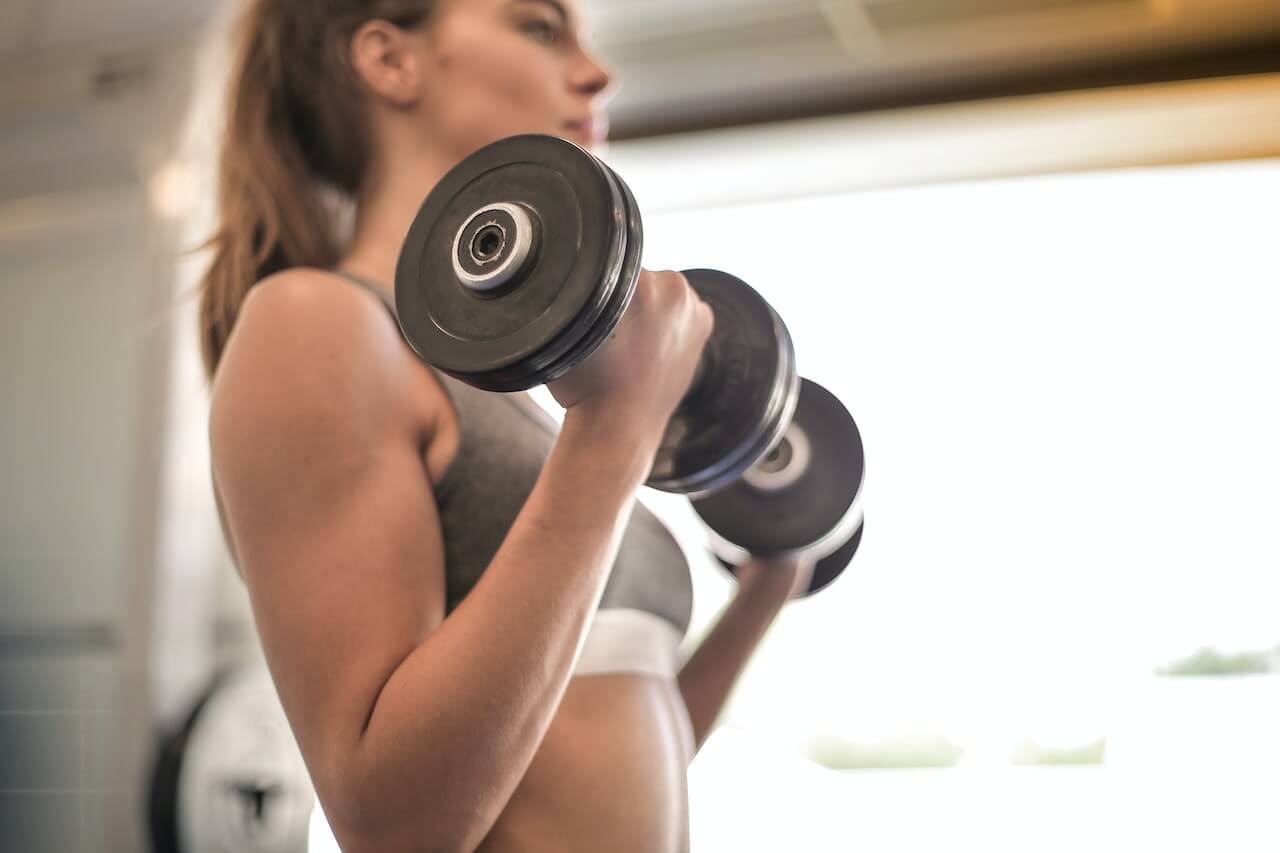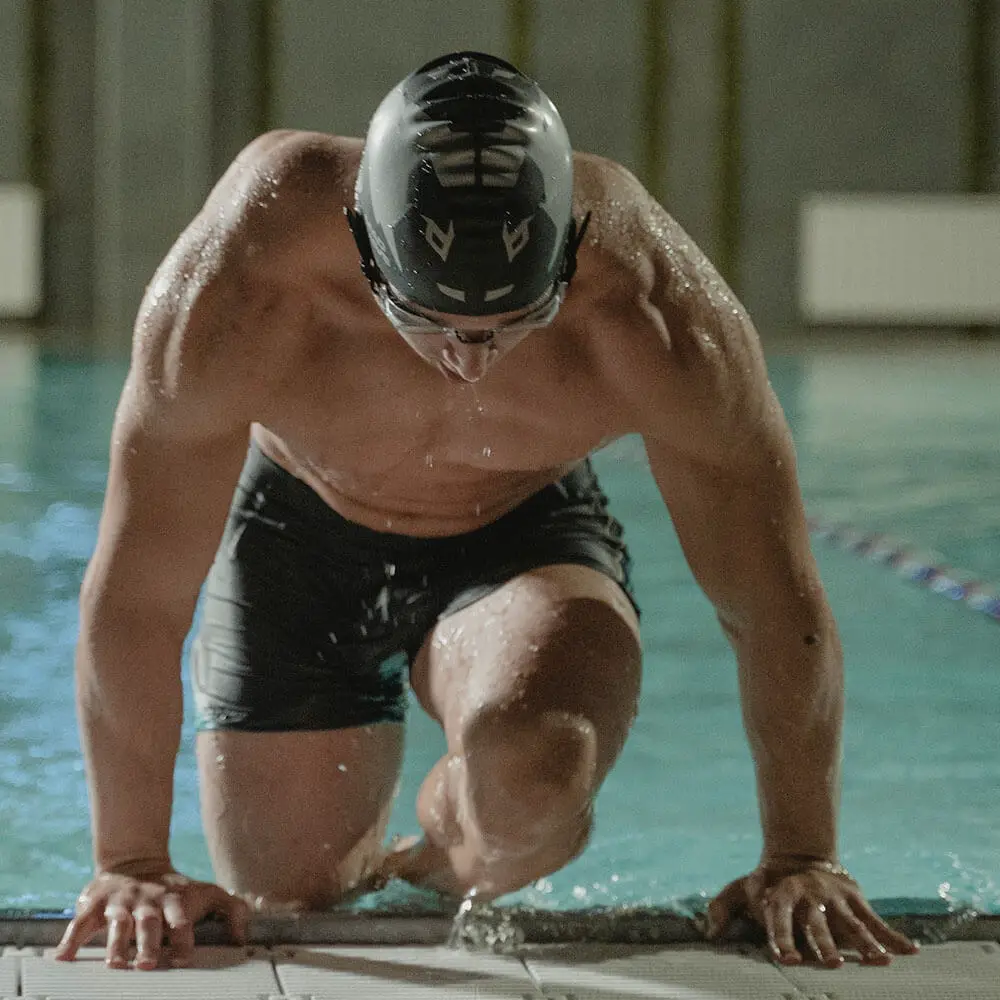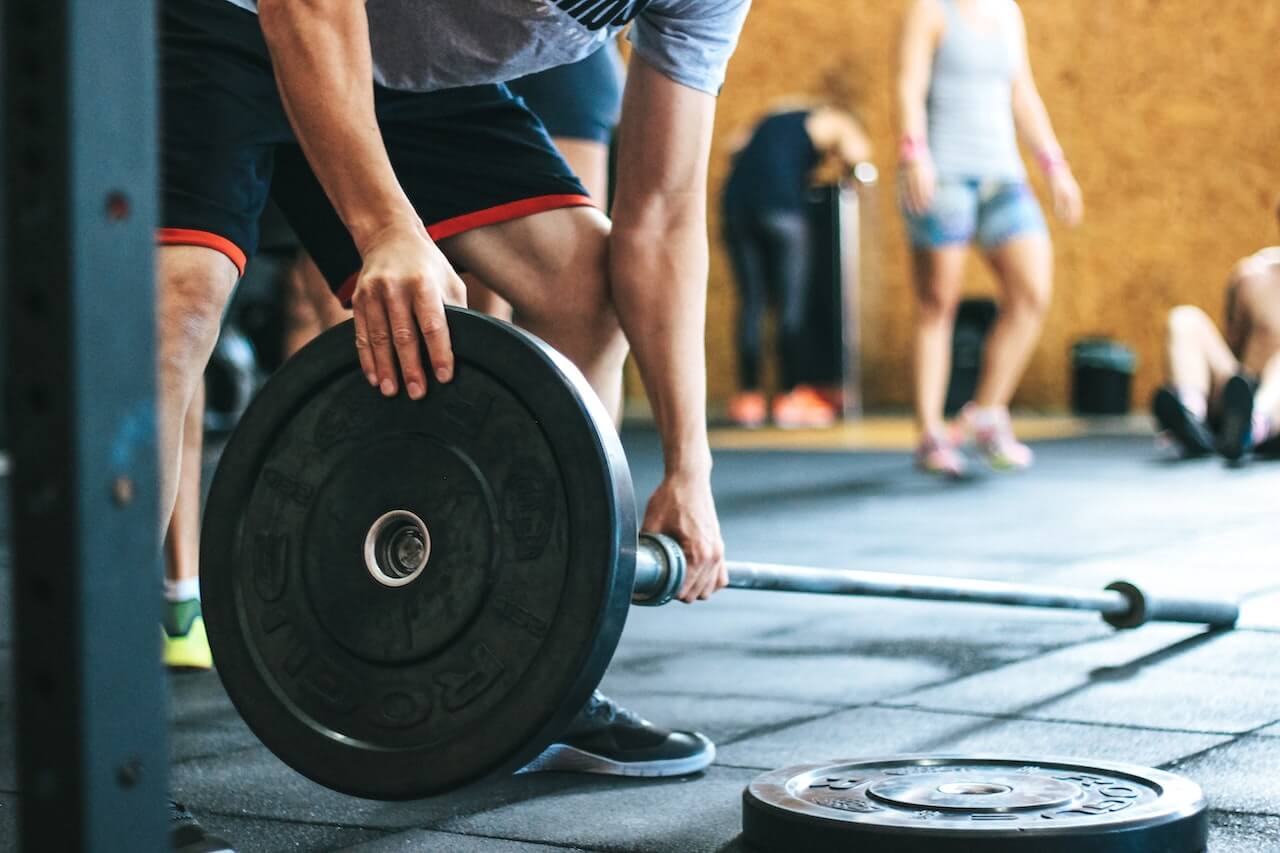Swimmers understand the importance of developing power, flexibility, and endurance to excel in their sport. Thus, many athletes include weightlifting in their training regimen to make their strokes more effective in the water.
Strength training via using resistance bands, free weights, or machines can help swimmers prevent injuries, build power, and improve flexibility. Weightlifting can help swimmers avoid common issues like shoulder injuries, back or neck pain, and swimmer’s knee. You can also break up the monotony of swimming laps while still working towards your swimming goals.
In this article, we will discuss the top reasons why swimmers lift weights and the benefits they gain from this cross-training activity.
Common Misconceptions About Weight Lifting for Swimmers
There are several misconceptions surrounding weight lifting for swimmers. This section aims to clear up some of the most common myths and misunderstandings.
Myth 1: Weight lifting will make swimmers bulky and slow
Many people believe that adding muscle mass will cause swimmers to have a slower performance which is technically true if they overdo it. However, if it were that easy to be bulky, then everybody would look like bodybuilders. You don’t just accidentally get big.
In reality, weight lifting helps swimmers develop power, strength, and speed, which contribute to better performance in the water. It’s important to follow an appropriate training program that targets the specific needs of swimmers, focusing on high-intensity strength exercises with lower repetitions and heavier weights.
Myth 2: Swimmers should lift weights before swimming
It’s actually better to lift weights after swimming in most cases if improving at swimming is your priority.
Tired muscles prior to swimming can negatively affect technique and efficiency in the water, potentially leading to strain and overuse injuries in joints and muscles. Rested muscles are ideal for intense or long swimming workouts, which helps produce effective training stimuli.
That said, it depends on your goals. If you want to bulk up and use swimming as a cooldown exercise, then you can go to the gym first and swim after. Just make sure to take it easy so as not to cause injuries after an intense gym session.
Myth 3: Weight lifting is unnecessary for swimmers
Many people believe that swimming alone is sufficient for strength training. However, lifting weights provides additional health benefits and helps prevent common issues such as shoulder injuries, back or neck pain, and swimmer’s knee.
Water provides only a limited amount of resistance, and quickly becomes insufficient once you’ve got a few weeks of training under your belt. Strength training complements swimming by targeting areas in the body that might not be adequately exercised during swimming and provides much greater resistance than water can.
Myth 4: Only freestyle swimmers benefit from weight lifting
Weight lifting benefits all swimming styles, including breaststroke, backstroke, and butterfly. A well-rounded strength training routine focuses on improving the performance of all muscle groups used in swimming, not only those required for one specific stroke.
Myth 5: Weight lifting is only for competitive swimmers
Even masters swimmers and those who swim for fitness can benefit from weight lifting. It helps reduce the risk of injury and promotes overall health by enhancing endurance, flexibility, and balance.
Top Reasons Why All Swimmers Lift Weights

Improved Strength
Lifting weights helps swimmers develop overall strength that can contribute to improved performance in the pool. Strength training, when combined with swimming, leads to the growth of lean muscle mass and increased power, which plays a vital role in swimming efforts.
Another benefit of having increased muscle mass is beneficial for boosting metabolism and burning more calories.
Enhanced Endurance
Swimmers who incorporate weight training into their routines tend to see an improvement in their endurance levels. This is because stronger muscles can withstand fatigue better and maintain optimal performance for longer periods.
Reduced Risk of Injury
A stronger body can better handle the repetitive motions and high impact of swimming, reducing the risk of strains and other injuries.
Incorporating strength training into a swimmer’s routine helps prevent injuries such as shoulder issues, back or neck pain, and swimmer’s knee.
By improving muscle balance and targeting stabilizing muscles, swimmers can maintain solid stroke technique, leading to safer and more efficient swimming.
Better Technique
Regular weight training helps swimmers refine their technique by strengthening the muscles needed for specific swimming strokes. Working on muscle imbalances and stabilizing muscles can lead to more efficient and effective strokes, which translates to improved performance in the water.
Increased Power and Speed
Weight training boosts not only strength but also power and speed. One of the significant benefits of weightlifting for swimmers is increased power, which helps them to swim faster and with more force when propelling themselves through the water.
Swimmers need to train specifically for strength and explosive power by lifting heavy weights and lifting weights more explosively (with more speed).
Promotion of Core Stability
A strong core is essential for swimmers, as it helps maintain body position and balance in the water. Lifting weights targets core muscles, promoting better horizontal positioning during swimming.
Explosive Starts and Turns
Improving strength through weight training can significantly impact a swimmer’s starts and turns. Increased strength, power and speed can all contribute to more explosive starts and efficient flip turns during races.
Dryland Training Variety
Weightlifting provides swimmers with a change of pace from their usual pool training, incorporating a blend of dryland exercises that target different muscle groups and provide variety. This can help keep swimmers motivated and engaged in their training plans.
Boosted Confidence
Swimmers who commit to weight training often experience a boost in confidence. As they see improvements in their strength, technique, and performance, they become more self-assured in the pool, enabling them to perform better during races and practices.
They also tend to have that athletic, “toned” physique that is the envy of many people. When you are turning heads both with a shirt on and off, you will receive a huge confidence boost knowing that people can’t help but stare at your chiseled physique.
Long Term Athletic Growth
Weight training contributes to a swimmer’s long-term athletic development. By consistently building strength, endurance, and technique, swimmers enhance their overall abilities and lay a strong foundation for continued growth and success in their swimming careers.
Weight Training Tips for Swimmers

Swimmers often include weight training in their workout routines to enhance their performance in the water. In this section, we will discuss some tips on how to get started, the best exercises for swimmers, and the recommended training frequency.
Note that this is not intended to be a comprehensive weight lifting tutorial. Ask your coach or hire a personal trainer for better, one-on-one guidance.
Getting Started with Weight Training
Before diving into weight training, it’s important for swimmers to have a solid foundation in their sport. They should have a good understanding of swimming techniques and be comfortable in the water.
Once the basics are in place, swimmers can begin to incorporate weight training into their routines. Consulting with a knowledgeable coach or personal trainer is highly recommended as they can provide personalized advice and guidance tailored to individual goals.
I cannot emphasize how important it is to receive proper instruction when starting out – both to ease your way into it, but also so that you don’t injure yourself. For example, you can easily mess up your shoulders if you don’t know how to bench press or shoulder press properly, and this can end your career rather than improve it.
Swimmers should start slowly and gradually increase the intensity and complexity of their weight training regimen. This will help prevent injuries and allow the body to adapt to the added stresses of weightlifting.
Best Weight Lifting Exercises for Swimmers
When designing a weight training program for swimmers, it’s crucial to focus on exercises that will enhance overall strength and power in the water. Some of the most effective exercises for swimmers include:
- Pull-ups/Lat Pulldowns: These target the lats, which are essential for strong and efficient freestyle and backstroke pulls.
- Squats: Squats build leg strength, which is important for explosive dives, turns, and underwater kicks.
- Bent-over rows: This exercise strengthens the upper back and shoulders, which play a key role in all swimming strokes.
- Deadlifts: Deadlifts improve overall strength, stability, and posture in swimmers, particularly in the core and lower back.
- Planks: A strong core is essential for maintaining proper body alignment in the water, and planks are a fantastic way to achieve this.
Weight Training Frequency
Swimmers should aim to incorporate weight training into their routine at least two to three times per week, or as directed by your personal trainer or coach. This frequency allows for consistent strength development without interfering with swimming-specific training sessions.
Scheduling weight training on alternate days or after swimming practices can help manage fatigue and prevent overtraining.
You can try “gyming and swimming” on the same day, but it’s also important to prioritize rest and recovery, so listening to the body and adjusting the workload as needed is crucial for long-term success.
With all of the benefits that weight lifting provides swimmers, it’s no wonder that all swimmers lift weights. A better question would be, why wouldn’t you lift weights if you want to improve as a swimmer?

